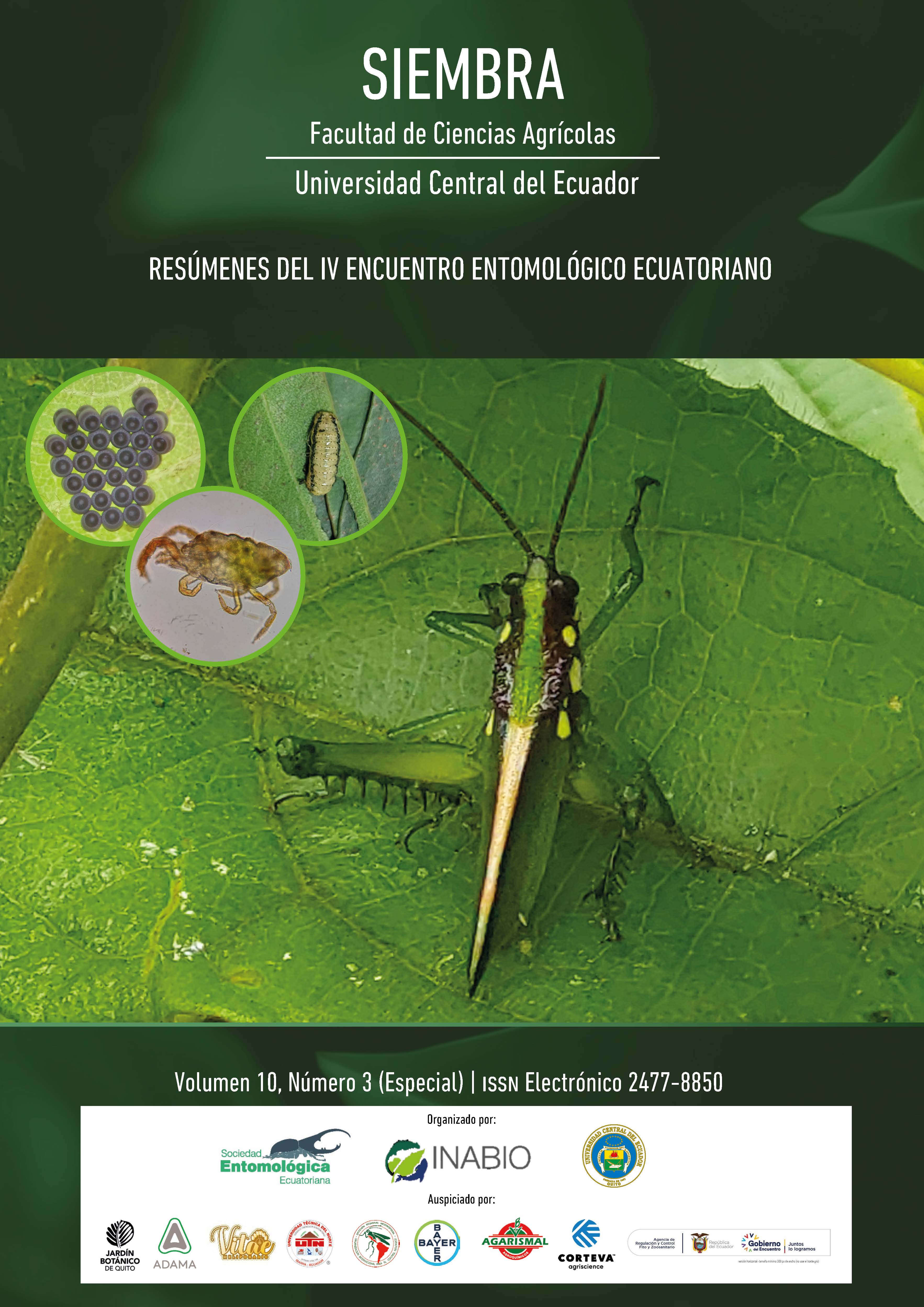ED003. Community environmental education focused on the conservation of the Meliponini tribe (Hymenoptera: Apidae) in the towns of Fatima and Santa Clara in the province of Pastaza, period 2020
Main Article Content
Abstract
This research seeks to determine the contribution of environmental education focused on the conservation of the Meliponini tribe (Hymenoptera: Apidae) in the towns of Fatima and Santa Clara. The methodology of this research had a qualitative-quantitative, non-experimental, descriptive approach, the chosen technique was the same survey that was directed to the inhabitants of the towns of Fatima and Santa Clara, with 19 questions and an interview was also applied to three one specialists, one of environmental education and the other two specialists from the Meliponini tribe. The results obtained show that 55 % of the inhabitants of the town of Fatima and 53 % of the inhabitants of the town of Santa Clara know or have heard the term environmental education, showing that over half of the inhabitants surveyed are unaware of the subject, they have not participated in training or workshops focused on environmental education, so they are unaware of the benefit of the conservation of the Meliponini tribe, but the predisposition of the inhabitants to participate in workshops and trainings to learn and improve their natural environment and the conservation of these species is high. In Ecuador, minimal studies of the diversity of the Meliponini tribe have been carried out; however, each of the records shows the mega diversity existing in the country because we have conditions that favor their proliferation. For this reason, it was decided to develop an educational didactic resource, a didactic and illustrated guide to environmental education focused on the conservation of the Meliponini tribe that will allow us to get to know these organisms and thereby develop an environmental culture in the inhabitants, and thus contribute to maintaining diversity of stingless bees.
Downloads
Metrics
Article Details

This work is licensed under a Creative Commons Attribution-NonCommercial 4.0 International License.
The authors who publish in Siembra know and accept the following conditions:
- Authors retain the copyright and grant Siembra the right of first publication of the work, under the Creative Commons Attribution License. Third parties are allowed to use what has been published as long as they refer to the author or authors of the work and its publication in this journal.
![]() This content is licensed under a Creative Commons Attribution-Noncommercial 4.0 International (CC BY-NC 4.0).
This content is licensed under a Creative Commons Attribution-Noncommercial 4.0 International (CC BY-NC 4.0).
- Authors maintain the copyright and guarantee Siembra the right to publish the manuscript through the channels it considers appropriate.
- Authors may establish on their own additional agreements for the non-exclusive distribution of the version of the work published in Siembra, acknowledging their initial publication in the same, such as in institutional repositories.
- Authors are authorized to disseminate their work electronically once the manuscript is accepted for publication.

